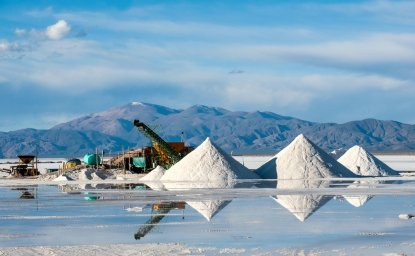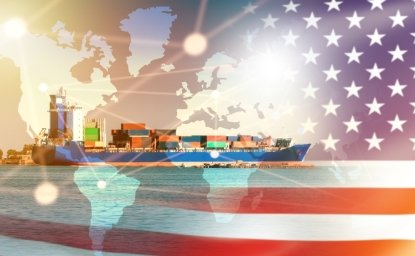In 2000, the governments of Chad and Cameroon teamed up with a three-company oil consortium, with the help of a World Bank loan, to begin building an oil pipeline. By 2003, oil revenues were flowing. This multi-billion dollar pipeline project, which transports oil from Chad through a 640-mile underground pipeline in neighboring Cameroon, is one of Africa's largest public-private development projects.
"Unfortunately, the project fell short on its social and development-oriented objectives," said Wilson Center Fellow Lori Leonard.
One of the World Bank's conditions on granting the loan was compensation for the involuntary resettlement this project would cause. However, Leonard said, the World Bank failed to understand, or take into account, social norms around land use and property relations.
"The compensation plan introduced the idea of private property but there was no institutional or legal framework for it," she said. "This led to a flood of disputes over land and created breaks in the social safety net and societal fabric in Chad." Uprooting people led to unprecedented problems, from the loss of land and livelihoods to disputes over compensation payments.
The reality was that in Chad, one of the world's poorest countries, about a quarter-million people were affected. "People in the oilfield region, like people everywhere, are deeply attached to the place where they live, tied to their land," Leonard said. Suddenly, their property became monetized. "They were asked to think differently about crops, trees, kitchen gardens, everyday objects," as everything was given a monetary value.
But all the land was populated so there was nowhere to move to and no other trade or skill to easily adopt. "The pipeline project did not create a local economy, that could absorb people who became land poor," she said.
The World Bank, which withdrew from this project in 2008 when Chad paid off the loan, accused Chad of misspending oil revenues, but that is just part of the story, said Leonard. The problem is not purely economic. "The economy is not outside of society," Leonard said. "[This project] put a market value on everyday objects and that reshapes societal relations. And it raises the ethical question: ‘How do I live now?'"
In Chad, a largely agrarian economy, large parcels of land became oil fields and wells, and pumping and collection stations.
"Fields were taken or divided up into small fragments and the people wonder what to do next," said Leonard. "Fertility rates are high and each successive generation will have to divide up [smaller and smaller amounts of] land. And there is already incredible pressure on the land now. The soil is poor but there is not enough [viable land] to leave land fallow."
Leonard, who teaches at the Bloomberg School of Public Health at Johns Hopkins University, first came to Chad as a Peace Corps volunteer during the post-civil war reconstruction period in the late 1980s.
"From the time of independence, oil was the promise of the future," she said. "The lessons the World Bank learned do not inspire confidence that it would be different the next time around. We need a fundamental shift in this development model."



